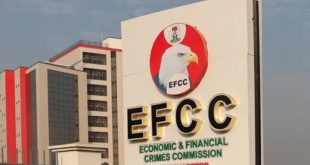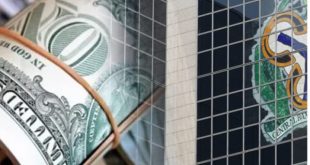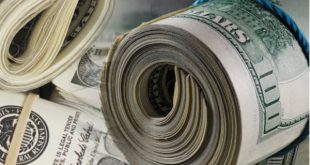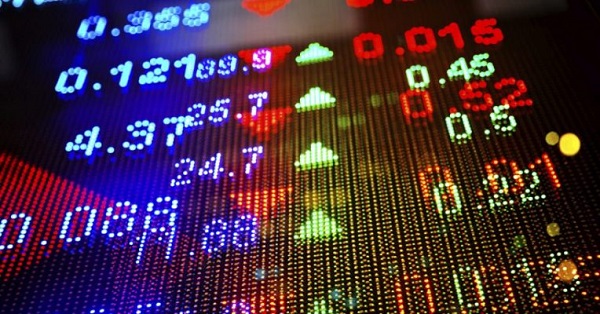The World Bank has said that Nigeria is in a worsening situation, with economic performance becoming weaker as inflation persists.
The Washington-based bank said this in its newly released Nigeria Development Update, which was launched in Abuja on Thursday alongside the Nigeria Country Economic Memorandum.

The NDU report noted, “Nigeria is in a challenging and deteriorating economic situation. Nigeria’s economic performance has weakened since the previous Nigeria Development Update was published in June 2022 under the title of ‘The Continuing Urgency of Business Unusual’.”
The financial institution also cut Nigeria’s 2022 growth forecast to 3.1 per cent from a previous forecast of 3.8 per cent.

It said that the revision was due to slow economic growth in the third quarter from a year earlier, dragged down by the oil sector and a weak performance in other areas of the economy.

The bank further forecast growth to slow by 2.9 per cent in 2023.
The report read, “Nigeria’s economic output growth has slowed and the World Bank is lowering its growth projections. Real gross domestic product at market prices growth in the third quarter of 2022 was 2.4 percent year-on-year, on the back of a continued contraction in oil output (-22.7 per cent y-o-y) and slowing non-oil growth (4.3 per cent y-o-y, down from 4.8 per cent y-o-y in Q2 2022). The World Bank now projects that real GDP will grow by 3.1 per cent in 2022 and 2.9 per cent in 2023–24, 0.3 of a percentage point lower than the previous projections at the time of the June 2022 NDU.”
Wages lose 35% value
During his presentation of the reports, the World Bank Lead Economist for Nigeria, Alex Sienaert, noted that the Nigerian minimum wage, which was worth N30,000 in 2019, could be valued at N19,355 today.
This means that there had been a loss of 35.48 per cent value between 2019 and 2022 as inflation erodes Nigerians’ purchasing power.
Sienaert noted, “The cumulative inflation between 2019 and 2022 was 55 per cent.”
He said that the rising inflation had led to a slump in the purchasing power of Nigeria.
In the NDU report, it was noted that consumer price inflation had heightened, making it one of the highest in the world.
The report noted that although the CBN was making efforts to curb the rising inflation by increasing interest rates, its funding of fiscal deficit through the ways and means advances had made things difficult.
Multiple challenges
The report read, “The rate of consumer price inflation has surged and is currently one of the highest globally. The consumer price index, already increasing at a high rate, accelerated in 2022 through October, to be up 21.1 per cent y-o-y, a 17-year high.
“High inflation has been persistent in Nigeria for the past two decades, but since 2019 inflation has increased substantially, driven by the multiple exchange rates and exchange rate depreciation in the parallel market, intensified trade restrictions, and the monetization of the public deficit by the Central Bank of Nigeria.
“In 2022, this has been exacerbated by the spike in global food and energy prices due to the war in Ukraine and global supply disruptions. Since May 2020, the CBN has responded by tightening monetary policy, increasing the policy rate by 500 basis points and increasing the cash reserve requirement by 500 bps. However, the disinflationary impact of these measures has been weakened by continuing monetization of the fiscal deficit, sector-specific subsidized credit provisions, and imported food and energy cost increases.”
The report also noted that Nigeria’s exchange rate policy settings are stifling business activity, investment and growth, and amplifying macroeconomic risks.
More 5m poor Nigerians
The World Bank also noted that inflation pushed five million Nigerians into poverty between January and October this year.
The report read, “As many as 5 million Nigerians have been pushed into poverty as a result of inflation in 2022. The World Bank estimates that between 2020 and 2021, inflation pushed about eight million more Nigerians below the poverty line, increasing the total number of poor people to about 90 million. Higher inflation in 2022 is estimated to have pushed an additional five million Nigerians into poverty between January and September 2022, mainly through higher prices of local staples, such as rice, bread, yam, and wheat, especially in non-rural areas.”
The Washington-based bank also said Nigeria’s economy was highly vulnerable to shocks.
It warned that if inflation and unemployment continued to trendhigh, insecurity would worsen in the country.
The report read, “Nigeria’s economy will remain highly vulnerable to both external and domestic shocks, and shocks will be exacerbated in the absence of urgently needed policy reforms to reduce inflation, increase fiscal revenues, and shift toward a market-responsive exchange rate.
“If inflation and unemployment remain high, this will exacerbate domestic security risks, which in turn could further reduce economic growth.”
According to the bank, high inflation had deteriorated in Nigeria since 2020, corroding citizens’ purchasing power and increasing poverty.
“Nigeria’s chronic, high inflation has worsened since 2020, eroding the purchasing power of Nigerians and increasing poverty. Since October 2019, Nigeria’s inflation has been persistently high. Inflation accelerated after the closure of Nigeria’s land borders in October 2019, and increased steadily throughout 2020 due to domestic supply constraints related to the COVID-19 pandemic. In 2021, at an average of 17 percent, inflation was above that of the previous four years and among the highest rates in the world.”
“During the course of 2020 and 2021, inflation was mainly driven by higher food prices, especially for staples such as bread and cereals, potatoes, yams, and other tubers, meat, fish, fruits, and oils and fats. The pace of price increases eased somewhat in 2021 as the economy reopened and domestic manufacturing and agricultural production increased, but inflation remained high at an average of 17 percent y-o-y,” the report added.
21.47% inflation
Nigeria’s headline inflation has continued to rise, hitting a new high of 21.47 per cent in November 2022 from 21.09 per cent in October 2022, according to the National Bureau of Statistics’ report released on Thursday.
Media observed that this was the highest rate in about 17 years.
According to the NBS, the reason for the increase year-on-year was the increase in the cost of importation due to the persistent currency depreciation and a general increase in the cost of production, including an increase in energy cost.
The month-on-month increase recorded was attributed to the sharp increase in demand usually experienced during the festive season.
The food inflation rate also increased to 24.13 per cent on a year-on-year basis, a 6.92 per cent higher compared to 17.21 per cent recorded in November 2021.
Experts tackle govt
In a recent interview with The PUNCH, the Deputy-President, Lagos Chamber of Commerce, Gabriel Idahosa, raised concerns over the continued increase of the nation’s inflation rate.
He said, “We are more or less in a runaway inflation period where inflation rate is beyond control. So it is difficult for both the CBN and the rest of the economy to be able to adjust to any rate of inflation because we don’t know what the rate of inflation will be monthly.”
The Director General, National Association of Chambers of Commerce, Industry, Mines and Agriculture, Sola Obadimu said, “ We all know the implication of higher inflation rates. It means everything is going up, and the prices are going up. And there are two things: either the dollar rate is going up or the naira is weakening, so the cost of input is going up.”
The Director, Centre for the Promotion of Private Enterprise, Dr Muda Yusuf, said that the rising inflation was a major cause for concern for stakeholders in the Nigerian economy.
He said this in a statement issued on Thursday regarding the November inflation rate announced by the NBS.
He said, “Like in many other parts of the world, the phenomenon of mounting inflationary pressures in the Nigerian economy is yet to abate. It remains a major cause for concern for stakeholders in the Nigerian economy.”
He added, “Over the last one year, the Nigeria inflation story has been a depressing one as reflected in the dynamics of all key price metrics.
“The key inflation drivers have not changed over the last few years. They include the following: the depreciating exchange rate, rising transportation costs, logistics challenges, forex market illiquidity, hike in diesel cost, climate change, insecurity ravaging farming communities and structural constraints to economic activities. Fiscal deficit financing by the CBN is also a significant factor fueling inflation through high liquidity injection into the economy.
“Tapering of monetary easing in the advanced economies is also driving imported inflation and the depreciation in the exchange rate.”
He urged the government to tame the rising inflation and asked the CBN to refrain from tightening the monetary policy.
Yusuf said, “Taming inflation demands urgent government intervention to fix supply side constraints in the economy. Tackling production and productivity constraints, fixing the dysfunctional forex policy, and reducing liquidity injection through ways and means funding of fiscal deficit are important.
“Meanwhile, the CBN should resist the temptation of further monetary policy tightening. The deployment of monetary tightening tools should be put on pause. The Nigerian economy is not a credit-driven economy which is why the tightening outcomes has been inconsequential as a tool to tame inflation.”
The former President of the Manufacturers Association of Nigeria, Mansur Ahmed, described the Federal Government’s attempt to rehabilitate refineries as wasteful.
He advised that the current refineries in the country be sold out to save the government revenue spent on its rehabilitation over the years.
FG seeks help
During the launch of the World Bank reports in Abuja, the Minister of Finance, Budget and National Planning, Dr Zainab Ahmed, said that the country needed help in financing its needs.
Represented by the Director General, Budget Office of the Federation, Ben Akabueze, she appealed to developmental partners and the private sector to support the government in financing its national development plan.
She said, “I wish to conclude my address by conceding that we need help. The Nigerian government at the national and subnational levels cannot provide all the financing required to meet Nigeria’s public investment needs.”
Also at the launch, the Governor of Kaduna State, Nasir El-Rufai, said that the Federal Government failed to implement a consensus on fuel subsidy removal, warning that states were the major losers in the Federal Government’s policy misalignment.
Tackling the CBN on the multiple exchange rate system, he also warned that Nigeria might end up like Sri Lanka if the Federal Government failed to remove fuel subsidy and unify the exchange rate system.
An aide to the President and former Acting Governor of the CBN, Dr Sarah Alade, noted that confidence in the Nigerian economy was very low.
She called for critical policies to boost investors’ confidence in the economy.
 MMS PLUS NG – Maritime, Aviation, Business, Oil and Gas News Online Newspaper with coverage in Maritime, Oil and Gas, Aviation, Power and Energy as well as Financial News
MMS PLUS NG – Maritime, Aviation, Business, Oil and Gas News Online Newspaper with coverage in Maritime, Oil and Gas, Aviation, Power and Energy as well as Financial News










